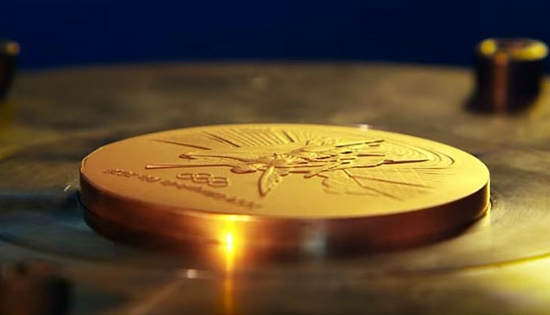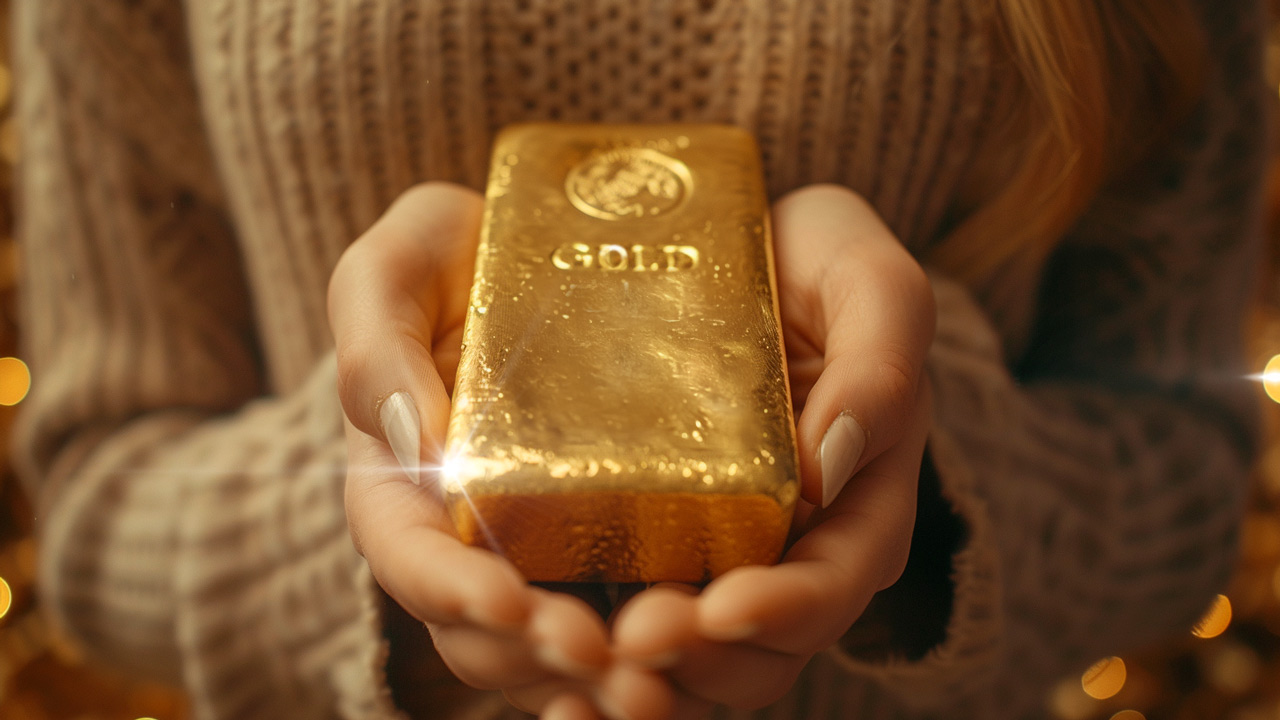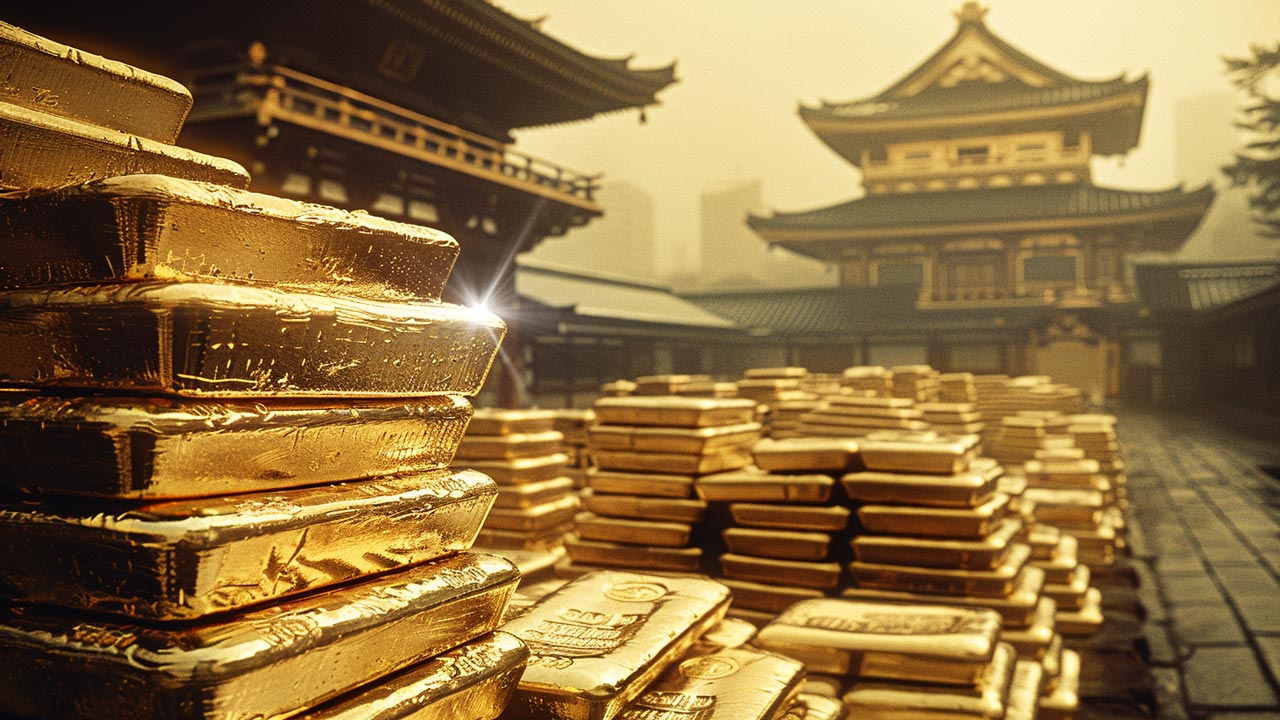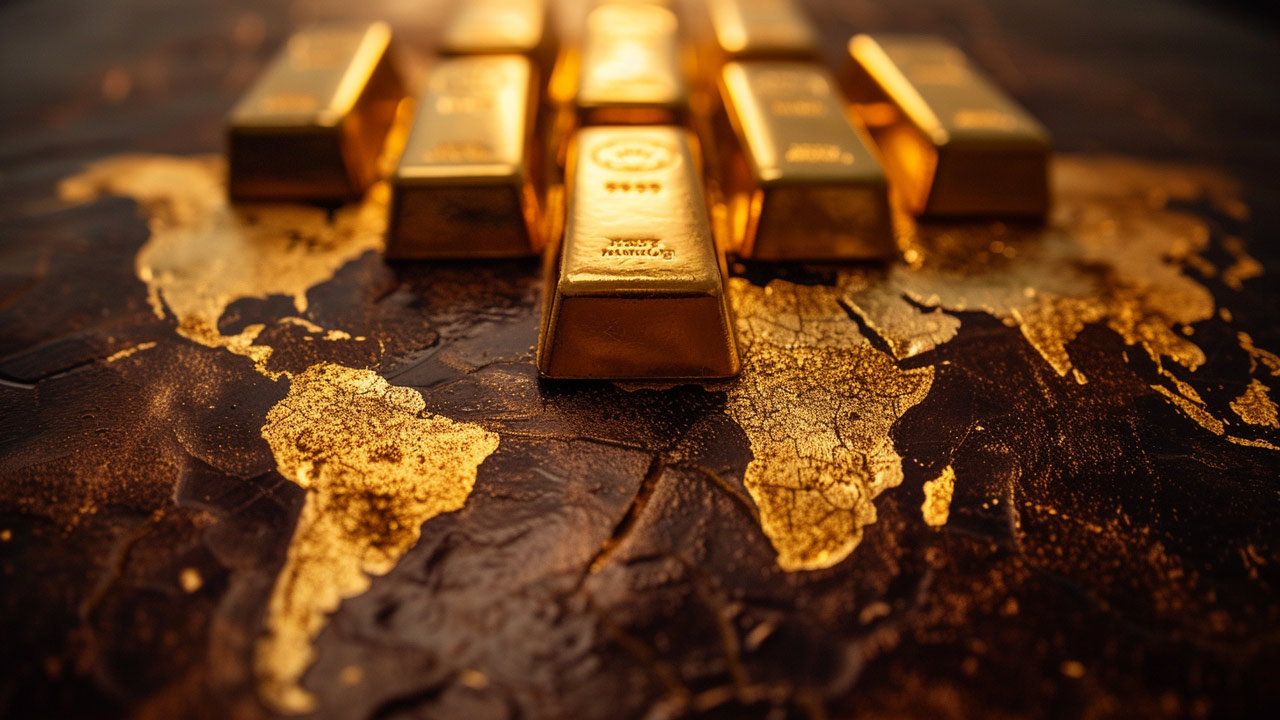2016 Olympic Medals Not Backed by Gold
The highly-anticipated Rio Olympics begins next week (August 5th), and with it, a race for the gold. Soon, Olympic winners will be standing on the podium donning their gold, silver, and bronze medals and waving towards a roaring crowd. Nothing is more iconic of the Games than these medals draped around the winners’ necks. But have you ever wondered if the Olympic medals are actually made of gold at all? It turns out today’s gold medals actually contain very little gold at all.
Gold Medal History
During the Ancient Olympic Games, winners didn’t receive medals at all. Instead, they won a wreath made from olive leaves from a sacred tree near the temple of Zeus at Olympia. It wasn’t until the 1896 Summer Olympics that winners were awarded with actual hardware. However, at that time top performers didn’t win gold; they took home silver. Second place received bronze.

1896 Olympic Silver Medal
It wasn’t until the 1904 Games in St. Louis that athletes were awarded gold medals for first place, moving silver and bronze to their respective places. Although the gold medals at the time were smaller, they were also completely made of the yellow metal.
But with WWI’s approach, the use of solid gold medals quickly diminished. According to Wikipedia, the last series of Olympic medals to be made of solid gold were “awarded at the 1912 Olympic Games in Stockholm, Sweden.”
Olympic Medal Design and Size
Throughout much of their history, the design and size of Olympic medals has remained relative stable. From 1928 through 1968 the design was always the same: the obverse showed the Greek goddess Nike with Rome’s Colosseum in the background and text naming the host city; the reverse showed another generic design of Nike saluting an Olympic champion.

1956 Olympic Medals
As a standard, all Olympic “gold” medals must be made from at least 92.5% silver, and must contain a minimum of 6 grams of gold. All medals must be at least 60mm in diameter and 3mm thick. Their size has changed from one game to another. The 2008 Beijing Olympics medals are much larger, having a diameter of 70mm and thickness of 6mm.
2016 Rio Olympic Medals
So how are the gold medals for the 2016 Olympic Games in Rio created? According to USA Today, the 500 gram “gold” medals consist of mostly silver, which is plated with “a tiny amount of Brazilian gold.” A solid gold medal would be too cost-prohibitive. To put that into perspective, to produce a single pure gold 2016 Olympic medal would cost around $23,500. However, with the silver center, the Mint was able to cut that cost to around $600 per medal.

2016 Rio gold medal
In 2012 the top 3 countries won 1,650 gold medals. If we use that same medal count for the Rio games, pure gold medals would cost $38,777,000 just to adorn the first place Olympians! The Rio Olympic committee produced a behind the scenes look at how the medals were created. Take a look:
While the gold used for plating meets purity standards set by the Olympic council, the silver and bronze medals are made from recycled materials. It’s all part of a “green” sustainability initiative, which set a goal of using 30% recycled materials. According to Rio 2016:
Half of the plastic in the ribbons, which will be used to hang the medals around athletes’ necks, comes from recycled plastic bottles. The rounded cases that hold the medals were made from freijó wood certified by the Forest Stewardship Council.”
The Brazilian Mint is responsible for delivering the medals when needed along with keeping them safe within their vaults.
The fact that the world can’t afford to create pure gold medals for its top athletes speaks volumes about the current value of gold and silver. Use the Rio Olympic Games to inspire you to begin looking into buying gold and silver yourself.
Get Peter Schiff’s latest gold market analysis – click here – for a free subscription to his exclusive weekly email updates.
Interested in learning how to buy gold and buy silver?
Call 1-888-GOLD-160 and speak with a Precious Metals Specialist today!




 Since Nayib Bukele became president of El Salvador, El Salvador has been in American media and global political discussion more than ever. While much of the attention focuses on Bukele’s mass incarceration of gang members and a decline in homicide of over 70%, Bukele has also drawn attention to his favoritism towards Bitcoin and how he […]
Since Nayib Bukele became president of El Salvador, El Salvador has been in American media and global political discussion more than ever. While much of the attention focuses on Bukele’s mass incarceration of gang members and a decline in homicide of over 70%, Bukele has also drawn attention to his favoritism towards Bitcoin and how he […] With gold hitting yet another awe-inspiring all-time high in the wake of Powell’s remarks reassuring markets (more or less) to expect rate cuts in 2024, a few analysts are pointing out risk factors for a correction — so is there really still room to run?
With gold hitting yet another awe-inspiring all-time high in the wake of Powell’s remarks reassuring markets (more or less) to expect rate cuts in 2024, a few analysts are pointing out risk factors for a correction — so is there really still room to run? Gold hit a new all-time nominal high, surpassing the previous record set in December of the previous year. The precious metal’s price reached approximately $2,140, indicating a robust and continuing interest in gold as a safe-haven asset, despite a rather peculiar lack of fanfare from the media and retail investors. This latest peak in gold […]
Gold hit a new all-time nominal high, surpassing the previous record set in December of the previous year. The precious metal’s price reached approximately $2,140, indicating a robust and continuing interest in gold as a safe-haven asset, despite a rather peculiar lack of fanfare from the media and retail investors. This latest peak in gold […] The gold price has been surging, with unprecedented central bank demand gobbling up supply. It has been a force to behold — especially as US monetary policy has been relatively tight since 2022, and 10-year Treasury yields have rocketed up, which generally puts firm downward pressure on gold against USD.
The gold price has been surging, with unprecedented central bank demand gobbling up supply. It has been a force to behold — especially as US monetary policy has been relatively tight since 2022, and 10-year Treasury yields have rocketed up, which generally puts firm downward pressure on gold against USD.  Total gold demand hit an all-time high in 2023, according to a recent report released by the World Gold Council. Last week, the World Gold Council (WGC) released its Gold Demand Trends report, which tracks developments in the demand for and use of gold around the world. Excluding over-the-counter (OTC) trade, 2023 gold demand fell slightly from 2022 […]
Total gold demand hit an all-time high in 2023, according to a recent report released by the World Gold Council. Last week, the World Gold Council (WGC) released its Gold Demand Trends report, which tracks developments in the demand for and use of gold around the world. Excluding over-the-counter (OTC) trade, 2023 gold demand fell slightly from 2022 […]
The history of what is given to the top finishers in each Olympic event is interesting to read. It does not matter what the physical medal is created from, what matters is that the “gold medal winner” is recognized as the best in the world in their event. $40M to supply the medals for all gold, silver and bronze winners is a lot of money, but a small amount in comparison to the total global economic impact of the Summer Olympic games. The best Olympians tend to make a lot of money from promotions, or in many cases, from their careers as professional athletes. For example, the average annual NBA salary for the players on the USA Basketball Team going to Rio is well over $20M per season, and most of those players earn more than their salary in shoe contracts and other promotions. Most of their competitors from the other countries are also extremely well paid. They certainly can afford to buy precious metals should they desire, and I expect the smarter ones have a small percentage of their vast total net worth in physical precious metals.
I disagree, GM. Why call the winner “the Gold-medal winner” when the medal is made mostly of silver? But hey, it’s a phony world now, so why expect the real thing?
You COULD make the gold medals smaller (the gold is worth MUCH more than an equal amount/weight of silver), and Brazil could even ask the US to help. There are those MILLIONS of ounces of gold in Fort Knox (they ARE there, are they not???!!!), and everyone in the government says gold is a barbaric relic, anyway…what difference does it make? The gold is just sitting there doing nothing, THEY say.
And ~$40 million…that’s chicken feed compared to what Hillary collects from foreign governments, or the government wastes in 20 minutes of “essential” activity. I even hear that Brazil is getting really good at squandering public dollars (or is it pesos??).
And isn’t it interesting that the 1904 to 1912 medals were real gold, but once the Fed was created to “stabilize the value of the currency” gold just wouldn’t “do”. Inflation???? Nah, the government says there is NO inflation.
What an interesting piece of information, thank you!
This was very interesting information,Thank You an do have a wonderful day.